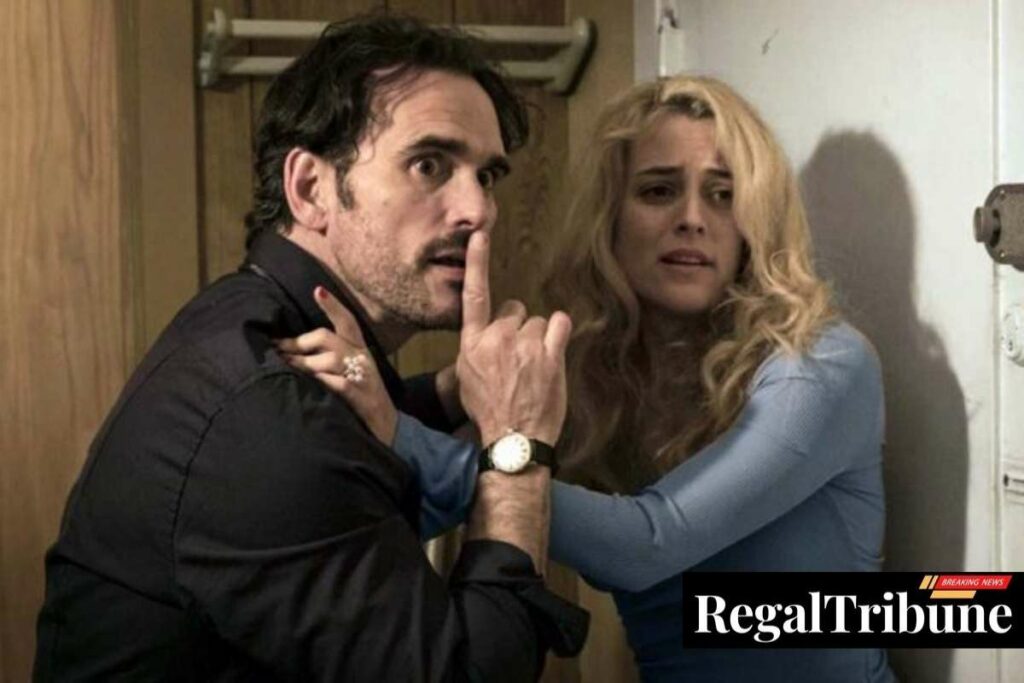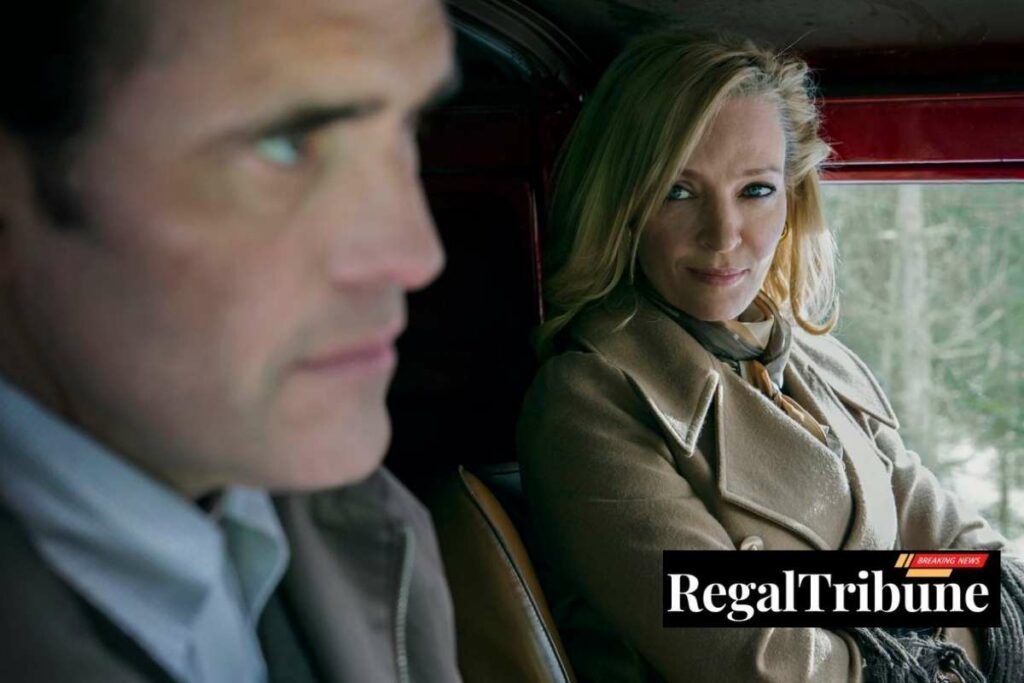It seemed inevitable that The House That Jack Built would be controversial. After all, it is a Lars Von Trier picture, and the filmmaker has created a name for himself with provocative films.
This horror film depicts the maturation of a prolific serial murderer; however, several viewers believed that the director went too far.
In The House That Jack Built, Matt Dillon portrays Jack, a serial killer who recounts his life’s five most significant murders.
Psychopathic and obsessive-compulsive, the audience watches as he develops a propensity for merciless murder, dodging consequences through a series of seeming lucky breaks that he interprets as a heavenly message.
Each murder is shown graphically and truthfully. However, this is not the sole cause for the film’s controversial reception. When they sat down to watch a film about a serial murderer, audiences familiar with Lars Von Trier’s previous films undoubtedly anticipated severe violence.
How could they forget that Antichrist practiced genital mutilation? Nevertheless, some individuals received more than they could bear.
The 2018 Cannes premiere of The House That Jack Built drew walkouts and anger, including a review in The Playlist that branded it “repulsive, poisonous garbage.”
This debate originates from several instances in the film, ranging from irritating sexism to repulsive child taxidermy.
In addition, Jack sympathizes with Nazi architect Albert Speer as the film depicts Speer smiling with Adolf Hitler, which some viewers have taken as Von Trier’s views on Nazism.
Overall, The House That Jack Built’s criticism stems from what Lars Von Trier appears to be saying in the film.
In The House That Jack Built, Matt Dillon portrays Jack, a serial killer who recounts his life’s five most significant murders.
Psychopathic and obsessive-compulsive, the audience watches as he develops a propensity for merciless murder, dodging consequences through a series of seeming lucky breaks that he interprets as a heavenly message.
Each murder is shown graphically and truthfully. However, this is not the sole cause for the film’s controversial reception. When they sat down to watch a film about a serial murderer, audiences familiar with Lars Von Trier’s previous films undoubtedly anticipated severe violence.
How could they forget that Antichrist practiced genital mutilation? Nevertheless, some individuals received more than they could bear.
The 2018 Cannes premiere of The House That Jack Built drew walkouts and anger, including a review in The Playlist that branded it “repulsive, poisonous garbage.”
This debate originates from several instances in the film, ranging from irritating sexism to repulsive child taxidermy. In addition, Jack sympathizes with Nazi architect Albert Speer as the film depicts Speer smiling with Adolf Hitler, which some viewers have taken as Von Trier’s views on Nazism.
Overall, The House That Jack Built’s criticism stems from what Lars Von Trier appears to be saying in the film.
The House that Jack Built Controversy
The House That Jack Built is a horror movie directed by Lars von Trier and starring Matt Dillon, Bruno Ganz, Uma Thurman, Siobhan Fallon Hogan, Sofie Grbl, Riley Keough, and Jeremy Davies.
In the late 1970s and early 1980s, the story follows Jack (Dillon), a serial killer who commits many murders in the state of Washington, United States.
The movie is structured as a series of flashback vignettes recounted by Jack to the Roman poet Virgil, during which Jack uses Dante’s Inferno as a metatext to justify his actions.
The House That Jack Built started production in Sweden in 2016, having been conceived by von Trier as a television show. Von Trier’s first participation at the Cannes Film Festival in over six years. Regarding the film, critics had conflicting opinions.

Why Was “The House That Jack Built” Movie Controversial?
The House That Jack Built was certain to generate controversy. This is, after all, a Lars Von Trier picture, and the director is known for producing challenging works. In this horror picture, however, several viewers felt the director went too far in illustrating the growth of a prolific serial killer.
In The House That Jack Built, Matt Dillon portrays Jack, a serial killer who recalls the five most significant crimes of his life.
As a result of a series of seemingly lucky breaks that he interprets as a divine message, he can commit brutal and ruthless murder without suffering any consequences.
Each murder is vividly and realistically portrayed. However, this is not the only aspect contributing to the picture’s issues. Audiences familiar with Lars Von Trier’s previous works certainly anticipated brutality when they viewed his film about a serial killer.
How could they forget about the genital mutilation of the Antichrist? Nonetheless, for some, the amount they received was still too much. The 2018 Cannes debut of The House That Jack Built drew protests and outrage, with The Playlist calling it “repulsive, poisonous garbage.”
Several moments in the film, ranging from offensive sexism to terrible child taxidermy, have caused this outcry. In addition, while the film features a documentary video of Speer laughing with Adolf Hitler, which some viewers have taken as Von Trier’s views on Nazism, Jack has sympathy for Nazi architect Albert Speer. The problem with Lars Von Trier’s film The House That Jack Built derives from what he seems to be saying with it.
Must check:
- Bon Appetit Controversy: The Drama Followed Racism
- Kay Mellor Illness: What Was The Illness That Kay Mellor Suffered From?
Why The House That Jack Built Is Controversial?
The portrayal of women in The House That Jack Built appears to be the most offensive aspect of a film filled with contentious imagery and concepts. Jack compels a mother to give pie to her two murdered children, whom he has just executed in front of her.
He uses a knife to remove a woman’s breasts simultaneously, putting one as a parking ticket on the windshield of a neighboring police officer’s car and fashioning the other as a money bag.
Perhaps most contentious, though, is Jack’s psychological treatment of women, in which he refers to a woman he appears to be dating as “Simple,” states cavalierly that “it’s always the man’s responsibility,” and questions why women are “always the victim.”
Each time Jack murders, it is a woman he perceives to be less clever, prompting spectators to ponder if this mirrors Lars Von Trier’s perspective on women.
From the self-hatred sequence in Melancholia to the realistic representations of sex in Nymphomaniac, Lars Von Trier’s films have always been controversial.
However, in The House That Jack Built, Von Trier appears determined to insult everyone, including women, police enforcement, and animal rights activists.
It appears as though he is attempting to provoke a response from his audience. It may be interpreted as a commentary on his controversial career.
Whatever the case may be, the majority of The House That Jack Built’s criticism is attributed to Lars Von Trier rather than taking direct issue with the film since it is unquestionably a horror film—and for a good cause.

During one of Jack and Verge’s philosophical chats between murders, they raise the age-old question of whether art should be divorced from its creator. Numerous cinema reviewers have frequently connected and justified Von Trier’s films with the director’s genuine internal issues with melancholy and self-hatred.
However, he has also made contentious personal statements. Von Trier was barred from the 2011 Cannes Film Festival following an interview in which he expressed sympathy for Hitler and compared himself to a Nazi.
However, the restriction only lasted for seven years, leading Cannes audiences to wonder why The House That Jack Built was permitted to debut at the event. The House That Jack Built has proven to be Lars von Trier’s most contentious picture, notwithstanding these criticisms.












